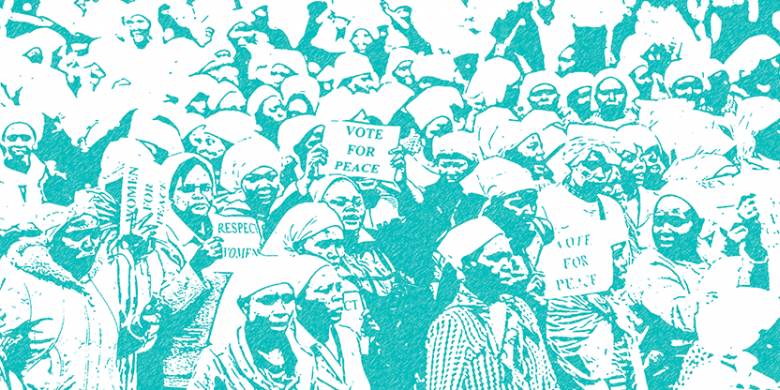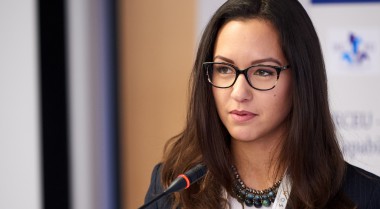
Call for Applications: "Civil Society: Inclusive Peace - A Reality Check"
GPPAC is joining forces with The Inclusive Peace & Transition Initiative and Peace Direct to host a consultation bringing together civil society practitioners and researchers to discuss civil society challenges, strategies, and options to make an impact on inclusive peacebuilding. The consultation will take place online over 3 days from 27 February - 1 March 2018 to kick off a year-long learning exchange as part of the Impact Local Peace project.

There is increasing global policy and research momentum on the topic of inclusive peace. The UN-World Bank report Pathways for Peace gathered evidence on the need to link participation and inclusion to peacebuilding and conflict prevention strategies. Sustainable Development Goal 16 explicitly refers to "just, peaceful and inclusive societies". The UN General Assembly and Security Council have unanimously adopted resolutions on Sustaining Peace and have characterized peacebuilding as a continuous effort to address root causes of conflict. They have identified peace as a shared responsibility between a diverse range of national stakeholders. Civil society is a central actor in this overarching agenda.
However, the reality for civil society actors is that the political space is shrinking globally, severely limiting their ability to contribute to inclusive peace. The context in which civil society operates must be at the heart of implementing the Sustaining Peace agenda. At the same time, the findings of comparative research, such as IPTI's work on civil society in peacebuilding and inclusive peace processes, provide civil society actors with frameworks to make their work more relevant and effective in relation to changes in the operational context, the phases of conflict, and across the full spectrum of civil society.
So how can we bridge the gap between normative international policy agendas, civil society experiences, and research contributions to foster impact on inclusive peace?
Topics for discussion
Over the course of the three days, participants will be asked to discuss topics such as:
- Civil society's contribution to inclusive peace: In view of the shrinking political space, what are the challenges and opportunities in the context?
- Civil society preparedness and strategies for increased impact: To what extent are activities informed by evidence, and what is shaping theories of change?
- Bridging the gap between practice and research: What are the (possible) processes, tools, and incentives for working together towards adaptive and context-specific peacebuilding?
Overall aim of the consultation
The aim of the consultation is to provide participants an opportunity to have a critical exchange and to share examples about what has and has not worked with regards to strategic guidance, tools, and processes that can support knowledge transfer and feedback loops between research, policy, and practice.
In collaboration with a group of participants, a report will be produced to share broader conclusions and reflections. The findings will further inform the next steps of the Impact Local Peace project, which participants are invited to stay involved in.
Who can participate?
Local experts and activists, practitioners, civil society organizations, and researchers. Priority will be given to participants with direct programmatic experience, in particular with regards to the facilitation of strategy and learning.
How can this benefit your work?
This is a unique opportunity for you to take part in a pertinent debate. You will:
- Have the opportunity to contribute to discussions on civil society, peacebuilding, inclusivity, effectiveness.
- Obtain a holistic overview of the current international political frameworks that are relevant for civil society.
- Learn from other experts and practitioners in the sector.
- Receive a report at the end of the consultation which you can use for your own work.
- Be listed as a contributor to the report.
- Have the opportunity to stay involved in the Impact Local Peace project and to further benefit from and shape future knowledge exchange.
How will it work?
The consultations will take place online and last 3 days. The main language will be English, but participants that are more comfortable writing in French, Spanish, Russian, or Arabic are welcome to do so on the understanding that their contributions will be Google-translated for the benefit of other participants.
A separate report will be produced that presents a summary of the online discussions. Participating organizations and individuals will be listed as contributors in the report. However, participants will also be able to contribute anonymously if needed.
What is required to participate?
The online consultation will take place from 28 February to 1 March 2018. We hope to select between 80 and 100 participants. During this period, participants will be expected to log in and join the discussion at least once each day, or more often if you choose to do so. You will be invited to read the introductory reflection pieces and comments of other participants, and to contribute by posting comments, responses, ideas, and examples. The online system allows participants to contribute at times most suitable to them and within their own time zone. It is therefore possible to fit participation around your usual commitments. It may take just a few minutes a day to make some very important contributions to the exchanges.
How to participate?
Slots for participation are limited. If you are interested in taking part, please fill in the form below before 19 February.
Guest experts
In addition to participants, a smaller number of guest experts will be invited to contribute short critical think pieces to stimulate the debate. Guest experts will help prepare sessions for the consultation and contribute to the final report. If you would like to participate as a guest expert, please indicate your interest in the registration form, where you can also outline a proposed topic for a session (feel free to contact the organizers if you would like to discuss further).
